How the New Labour government brought equal marriage into law
Sally Morgan was one of Tony Blair’s closest advisers. She spoke to students at King’s College London about her role in the establishment of civil partnerships. By John Rentoul

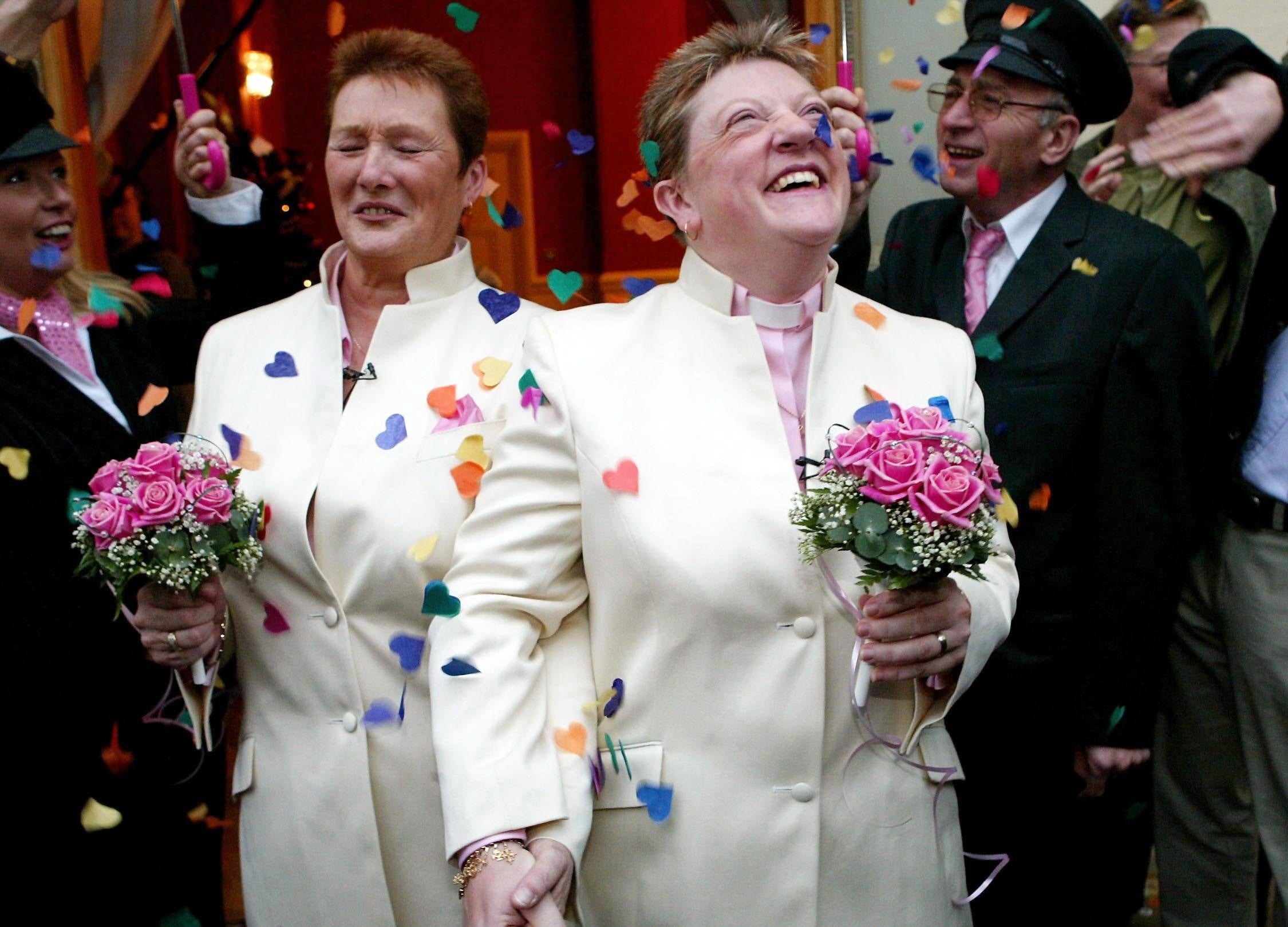
Sally Morgan, Baroness Morgan of Huyton, a key adviser in Tony Blair’s Downing Street, remembers Alastair Campbell, the prime minister’s press secretary, saying to her: “You said you weren’t going to do gay marriage.” She said: “I’m not doing gay marriage.” He said: “Look at the Express and look at the Daily Mail, they say it’s gay marriage.”
She had devised civil partnerships, which became law in 2004, a significant step forward in equal rights, but she gave this example when she was asked by one of our students at King’s College London: “What was the nature of Blair’s strength as a team leader?”
She said: “He was really clear overall what he was trying to do, which meant that you did, broadly speaking, know the space you had. You knew how much you could persuade and push, and what the boundaries were. He was also extremely supportive of the team. He never lost it with people – and I don’t think most of us ever did with other people. We were mutually personally supportive. As a people leader, he wasn’t a great manager; he didn’t know how to do that, he had never managed anything, but that doesn’t matter because there were other people there who could – but he was a clear leader.”
He wasn’t a great manager; he didn’t know how to do that, he had never managed anything, but that doesn’t matter because there were other people there who could – but he was a clear leader
She gave as an example the way she had been allowed to develop the policy on civil partnerships when she was equalities minister in the House of Lords in 2001. She worked with Ben Summerskill, chief executive of Stonewall, the LGBT+ charity, to abolish the Conservative “Section 28” law which banned the “promotion of homosexuality” in schools. “I said obviously, we need to repeal that. But honestly, isn’t that rather tokenistic? Shouldn’t we be doing something bigger? And we came up with the idea of civil partnerships.”
At the time, there wasn’t enough public support for equal marriage to get it through parliament, she said, but renaming it “civil partnership” offered a way forward. Morgan said she “never checked in” with Blair on the policy before sending it around cabinet ministers, which prompted Campbell’s question. “I think I literally didn’t talk to Tony about it except to say, ‘By the way, I presume this is fine,’ because I was so clear that it fitted in with the parameters of what I knew we were trying to do as a government.”
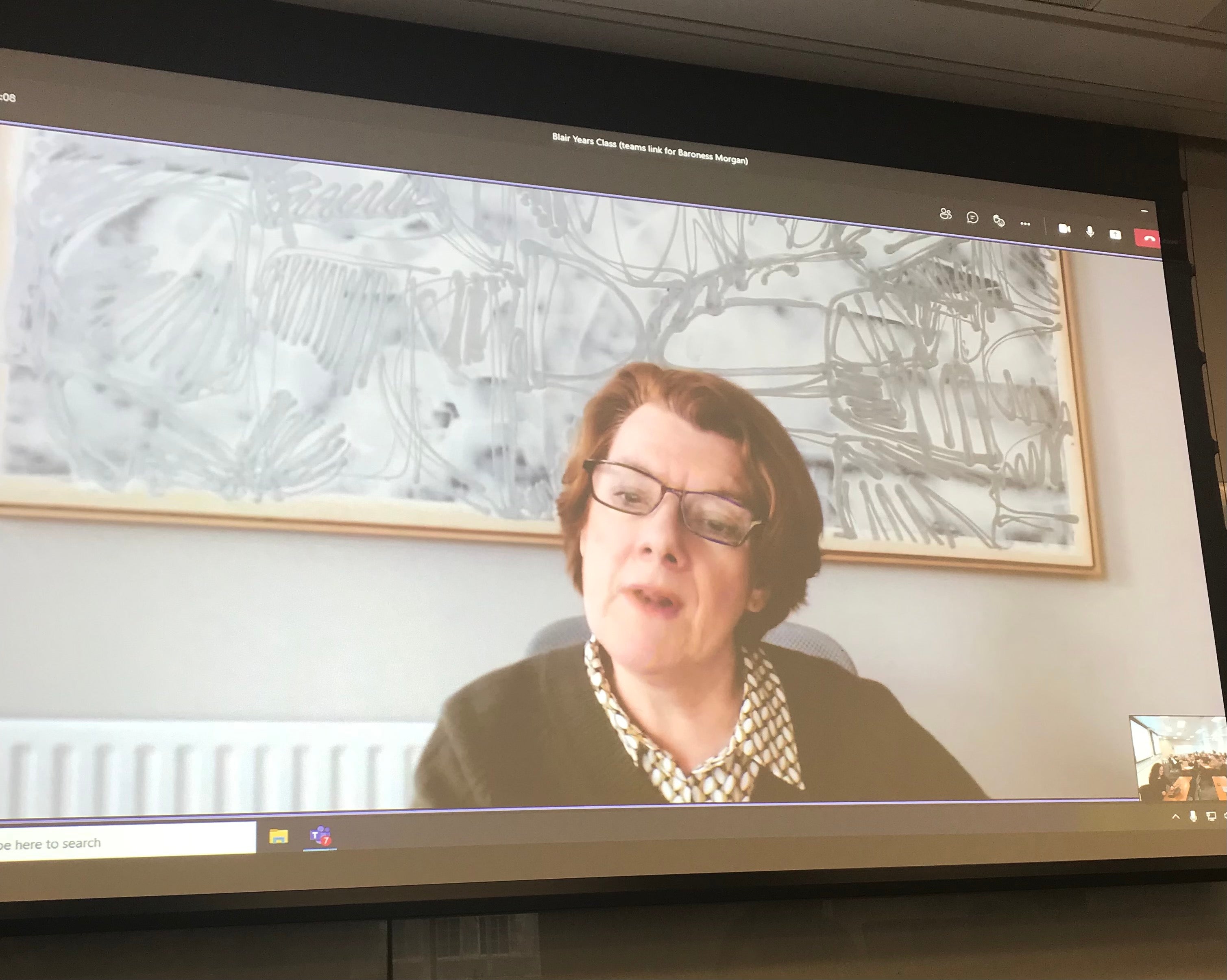
Morgan said it was a great strength of Blair’s government that it had a strong centre, united by a clear sense of purpose. “Which means that your time is used well, but he delegated sufficiently that, even if he wasn’t 100 per cent sure of things that people were doing, he recognised he broadly speaking had to trust people and back them, because otherwise things would grind to a halt. And I think in all sorts of organisations, if that doesn’t happen, things don’t move forward.”
She was talking last month to students on the “Blair Years” course that I teach with Dr Michelle Clement and Professor Jon Davis at King’s. Although many of our graduate students were not born when Blair became prime minister 25 years ago, a lot of the lessons of the New Labour period are applicable today, when No 10 does not appear to have the same level of cohesion and trust.
In her time, the core team in No 10 was strong, Morgan said. “I think having a strong centre works if you’ve got a strong view of what you want to do as a government. So if you didn’t really know what you’re trying to do, you could have as big a centre as you wanted, and it would make absolutely no difference. I don’t think it’s about size; I think there’s probably a point beyond which it doesn’t work very well. The centre has to be responsible for knowing overall what your priorities are as the government, and working on those, and not trying to meddle in everything.”
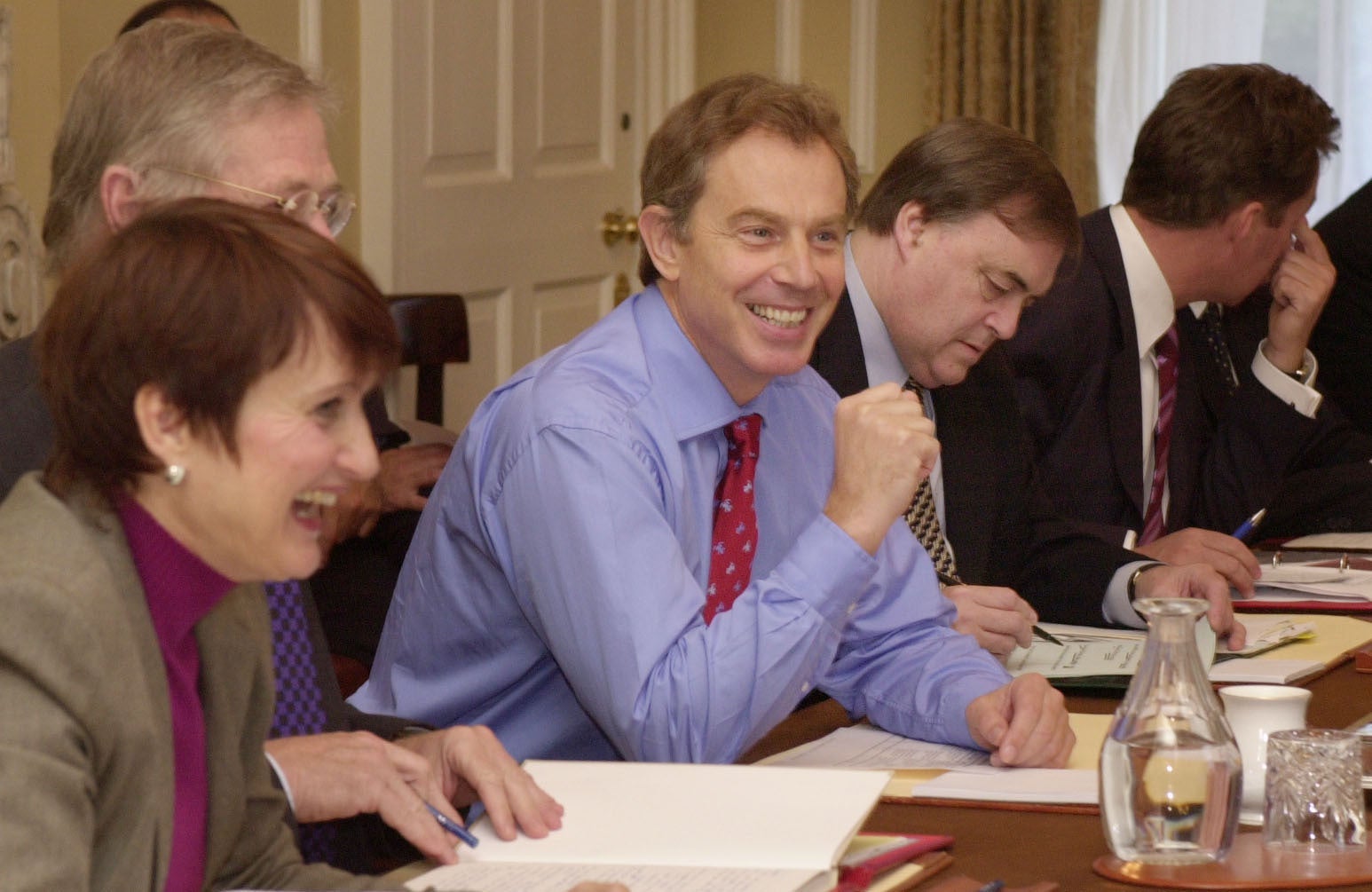
Blair’s No 10 was organised and disciplined, she said, contrary to the “chat” about “sofa government”. The week was often driven by a “note”, handwritten by Blair on a Sunday – “He wasn’t able to use a computer at that stage” – which was typed up and discussed by an 8.30 meeting of the core No 10 group in Morgan’s office on Monday morning. “You slightly desperately thought, ‘Oh, no, point five is definitely me, oh dear.’ Sometimes it was one side of A4 and sometimes it was 30. It depended on what was going on.
The nightmare one was the post-holiday one, which ran into pages and pages and pages, right through government. ‘Where are we on the euro?’ Huge topics. ‘This is what is on my mind.’ When we had an asylum-seekers crisis, then the note was about asylum seekers. ‘Clear my diary; this has got to be the focus of whatever I’m doing for the next few days.’ ‘Who do I need to see?’ ‘By Friday, who and what do I need to have tried to do?’
“I’m quite amused when people say it was all so laid-back because it wasn’t,” she said. It became even less laid back early in Blair’s second term, when the note would be reviewed at the end of the week. “He started to get a bit frustrated: ‘Where’s the progress; how am I measuring what’s happening?’” So Liz Lloyd, the deputy chief of staff, compiled a checklist every Friday of what had happened on each of the points on Monday’s note. “It was a good discipline,” said Morgan, “because until then I think we were inclined to say, ‘Well, perhaps he’ll forget point five.’ We all do that, don’t we?”
I can remember the very first morning after the election in May ’97, forming the first government and being told it was not possible to have a woman in every [ministerial] team
She described the core team in Blair’s Downing Street: “It was a very complementary team, from the political office, which was funded by the Labour Party (it’s always funded by whichever party is in government), through special advisers, who are this strange mixture of being political but on the government books, through to the civil service. As a group we were very supportive of each other. We were connected with different parts of the hinterland; our backgrounds were different, our networks were different. We didn’t come in as a group of friends at all. We didn’t not like each other; we didn’t know each other very well, in many ways. But we became a strongly supportive group, and we were definitely complementary.”
She made the same point as Anji Hunter, another of Blair’s close advisers, who came to talk to the class on an earlier occasion, about the number of women in No 10. “I think one of the very striking things about the current government is that it’s been very, very male, and we always had women involved in the core group and I think that was quite important. I can remember Anji and me, for instance, although we have very different networks and backgrounds, we had the same view on certain policy decisions. The classic one was the foot-and-mouth general election where we argued for postponement, and the men wanted to go ahead. We just said, ‘No, no, people just would not understand.’ And Tony backed us, interestingly.”
This had led to something of a cultural revolution when the Blair government was first elected. “I can remember the very first morning after the election in May ’97,” Morgan said, “forming the first government and being told it was not possible to have a woman in every [ministerial] team, which is one of the things we said we wanted; that they would never have that in Defence. It sounds ridiculous now, but literally there was a conversation: ‘No, that’s not possible.’”
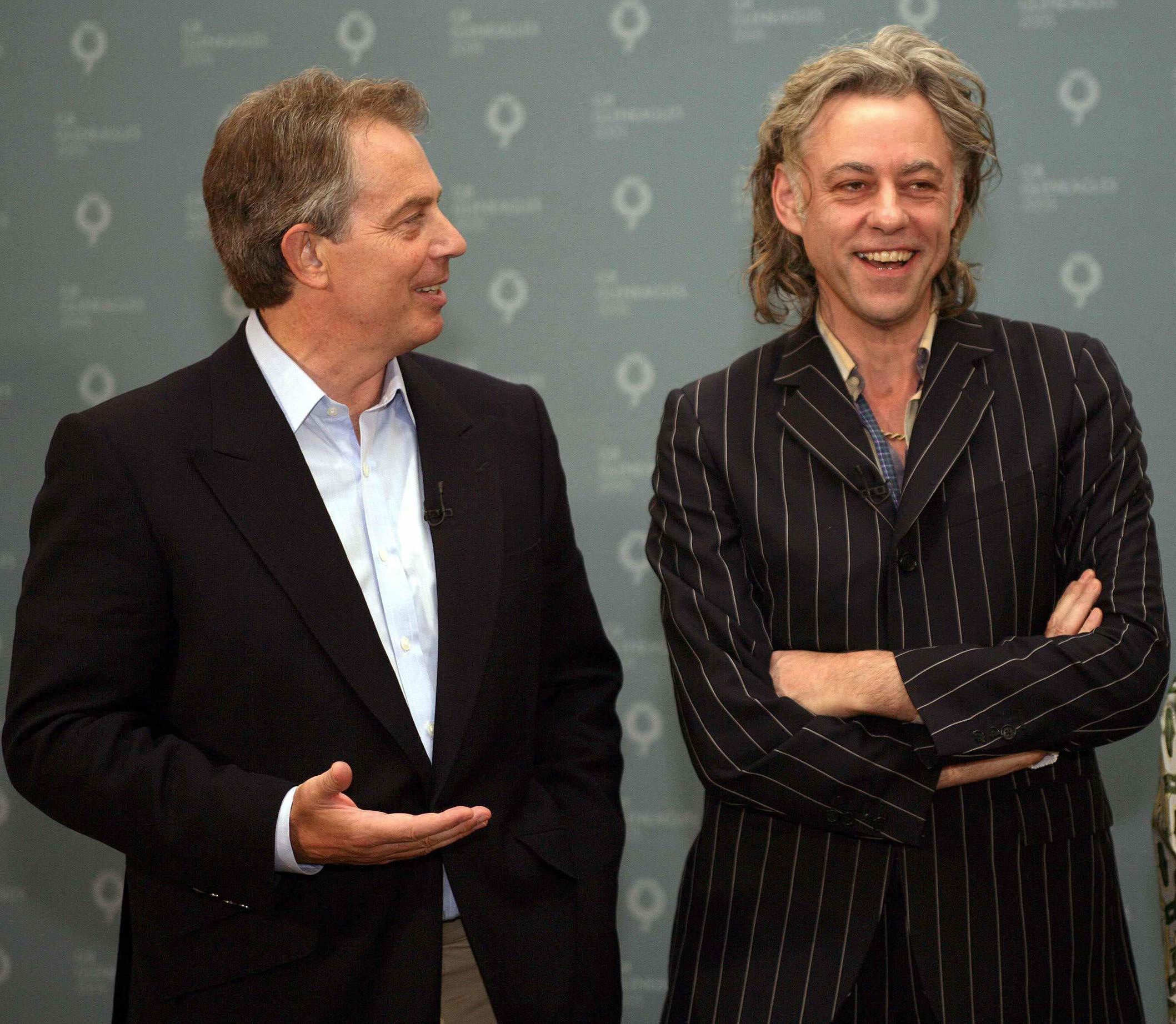
Allied to a strong sense of purpose in No 10 was a focus on building alliances outside it. Morgan’s partnership with Stonewall on civil partnerships was one example of working to bring outsiders into the big tent and to lead public opinion. By the end of the Labour government, the idea of equal marriage was so broadly accepted that David Cameron was able to legislate for it in 2013, and it is now uncontroversial. Another example was the preparation for Live Aid, which coincided with a G7 summit meeting – at the time called the G8 with the inclusion of Russia – in 2005.
This, said Morgan, was a “substantial, long piece of work where frankly many people were encouraged to lobby the government because we wanted the pressure, we wanted to be able to react to the pressure, so it was quite an organised deal. What you couldn’t do was stop [Bob] Geldof swearing, so you just had to get on with it; and in a way it was better not scripted, because what could you do?”
What you couldn’t do was stop [Bob] Geldof swearing, so you just had to get on with it; and in a way it was better not scripted, because what could you do?
She said the Blair government’s approach was the opposite of “cronyism”, because “all the time we were trying to work with groups of people who were not Labour Party members but who were broadly sympathetic to what we were trying to do as a government”. When the government started to launch academy schools, Blair hosted a breakfast in No 10 for possible sponsors. “It was a load of Tory donors, really,” said Morgan, “but we wanted their money going into the school system. So we went out of our way to try and make sure that we had a range of people who saw themselves as broadly ‘not Labour’ but thought, ‘This is quite interesting that they want to talk to us.’”
One weakness that Morgan admitted did afflict the Blair government was the tension between the prime minister and the chancellor, the so-called TB-GBs: “I do remember one of Tony’s classic notes that had something like, ‘TB-GB: what to be done?’” She said that the tension sometimes led to better decisions, but that it was increasingly unhelpful to Blair: “I can hand on the heart, having worked with him all those years, still say I don’t quite understand the relationship.
“In the early years, the formation of New Labour, it was an incredibly strong partnership, and in many ways it was a strong partnership throughout. The tension came because the more that Tony became confident and clear about what he felt we were trying to do as a government, the more there were disagreements, because Gordon felt, ‘This is my part of the agenda; that’s your part of the agenda.’
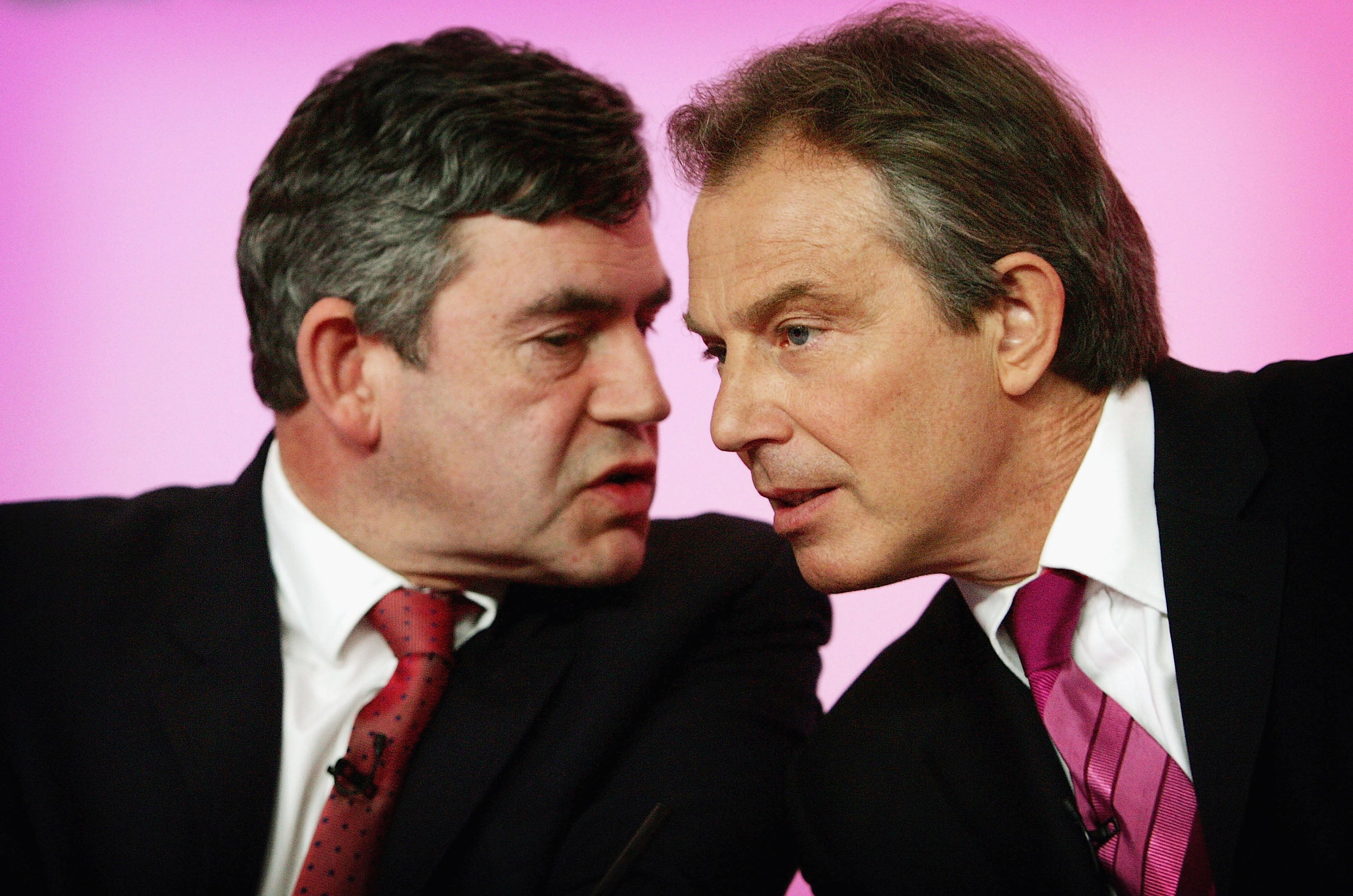
“Some of the tensions probably were good, and forced hard and horrible conversations, but probably got to a better place. Some were more tokenistic and silly, and occasionally we probably got to the wrong place from No 10, but I would say that, wouldn’t I? Occasionally I thought there were games being played that were a bit pointless. The classic one was Gordon being really difficult about academy schools. In all the time until he was prime minister, he refused to visit an academy. And yet the first school he visited when he became prime minister was an academy. And I just thought, ‘Oh for goodness’ sake.’
“There were also some genuine policy disagreements, which had to be had,” she said, giving the example of Brown’s promotion of tax credits to support the incomes of low-earning and unemployed people with children. “Gordon, following on from Democrats in the States, had a view that working families tax credits were the core of economic support for more disadvantaged regions. When I look back, and I’m not pretending I was arguing this at the time, it’s more that we suddenly realised quite late on – and probably after my time actually – that we didn’t really think seriously about how to reskill and bring investment in for a new set of industries.
Why wasn’t there early work put into wind farm investment in the northeast, instead of propping things up through working families tax credits?
“You look at the northeast, and you think, ‘Why wasn’t there early work put into wind farm investment in the northeast, instead of propping things up through working families tax credits?’ And there were some disagreements on welfare reform, that were Gordon wanting to go faster and harder on welfare reform, and Tony looking at his constituency, which is full of ex-miners, saying, ‘We just can’t do that; you can’t take that money away, because there’s nothing else there.’ So it wasn’t always on one side, actually; it was more complicated.”
Morgan was particularly close to Blair at the time of the Iraq war, and was central to the operation to rally support among Labour MPs for the vote on military action – Blair being the first prime minister to put such a decision to parliament. In answer to a question from a student about whether she really believed that Saddam Hussein had weapons of mass destruction (WMDs), she said: “I know it’s hard to believe, but yes, we did. We all did. We saw the intelligence. I mean, I didn’t see a lot of the intelligence because I was trying to sort out people supporting the broad approach, but I saw enough. But everybody thought there were WMDs. The Russians thought there were WMDs; [Jacques] Chirac [the French president] thought there were WMDs. The argument was over what you should do about it; it wasn’t whether it existed or not.
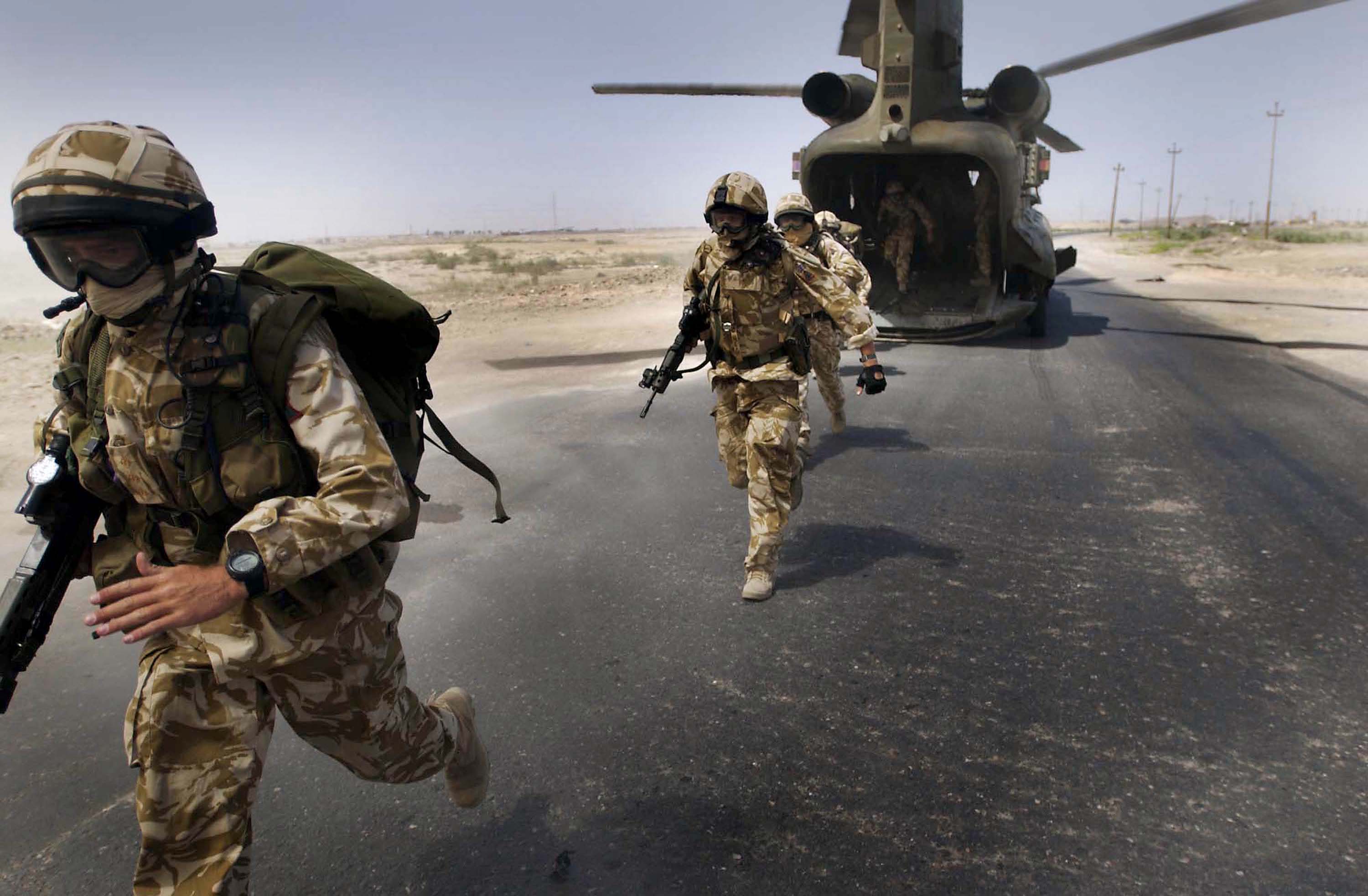
“The decision to share intelligence now feels rather naive, but it was taken with the best of intent, which was ‘How do we try and explain to people why we think this is important, and why we think it’s necessary to take action?’” She said she thought it was interesting that Ben Wallace, the defence secretary, along with the CIA in the United States, had been similarly open with the intelligence about Vladimir Putin’s intentions in Ukraine.
“My concern about Iraq wasn’t so much – this may sound shocking at one level – the foreign policy decisions; it was the potential political impact. And that was the conversation I remember having with Tony at the time, which was, ‘This could bring everything down’. But he was absolutely clear that he felt it was the right decision and whatever happened he had to see it through.”
Finally, a student asked about Blair’s comment that Labour’s mistake since he was leader had been to deviate a millimetre from New Labour – was he saying that the only way for the party to win was to go back to the past?
“I don’t think you can do New Labour again,” Morgan said, insisting that Blair was not saying that the policies of 1997-2007 were immutable. “I don’t think he is saying that. It’s worth reading that recent speech he did about the big challenges. I think he has always said, ‘Where does the UK need to go in the next 10 years or the next 20 years? And how do we become a political force that builds a coalition of support that means we can move the country forward?’
“I think he was consciously prime minister more than he was leader of the Labour Party, which upset some people. But I think to be a successful prime minister you do have to have real reach beyond your own party. And so I think it would be foolish to go back to the electorate and say, ‘We’re New Labour’. We’ve got to find a way of saying, ‘We’re future Labour’.”
Join our commenting forum
Join thought-provoking conversations, follow other Independent readers and see their replies
Comments
Bookmark popover
Removed from bookmarks